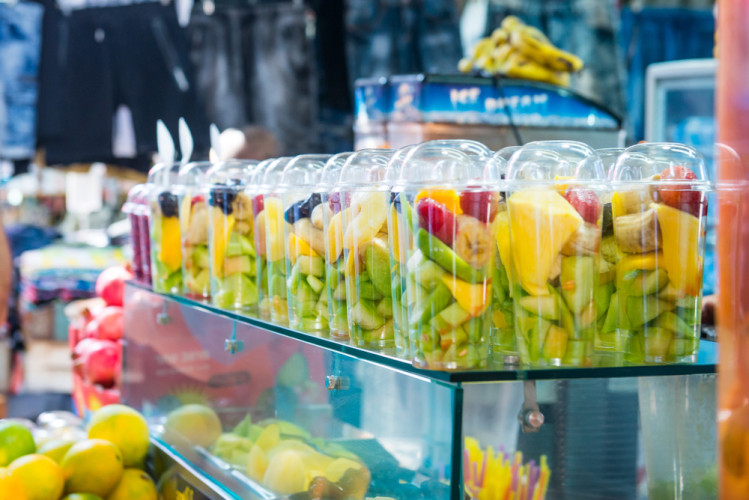News
27.03.2019 - Foods

Microbiology of fruit salads as a convenience product
Products like freshly prepared fruit salads and pre-cut fruits are trendy among consumers, as they do not have to purchase and prepare each type of fruit individually. A variation of fruit types such as pineapple, apple, strawberries, blueberries, (honey and/or water) melons, oranges, and grapes are often represented.
Due to the nutrient composition, such as the high carbohydrate content, the non-intact peel, and the enlarged surface area, the fruit provides an ideal breeding ground for microorganisms, such as Enterobacteria and Bacillus Cereus. These bacteria can reach the fruit flesh, for example, during processing via the peel.
In the microbiological investigations by the CVUA Stuttgart from 2016-2018, a complaint rate of 9.5% was found due to the hygiene parameter Enterobacteria. The investigations took place regardless of the expiration and consumption date. The guideline and warning values of the DGHM from 2011 for the assessment of cut and packaged fruit were used for the evaluation of the investigation.
The detected germ counts of the complained samples indicate a contamination of the fruit pieces with germs during production and/or a multiplication of the germs after production during the storage of the fruit salads.
Source: CVUA Stuttgart
